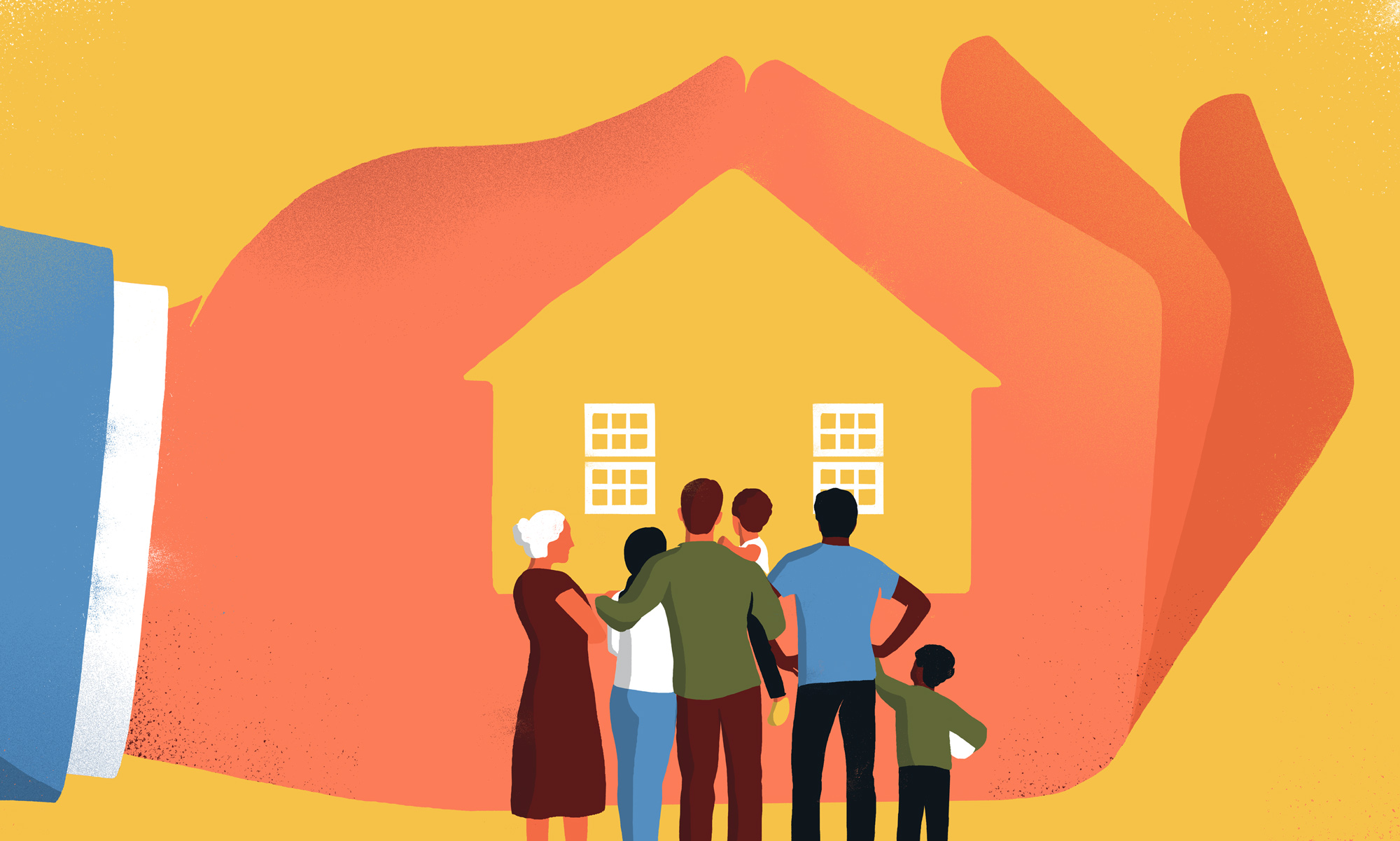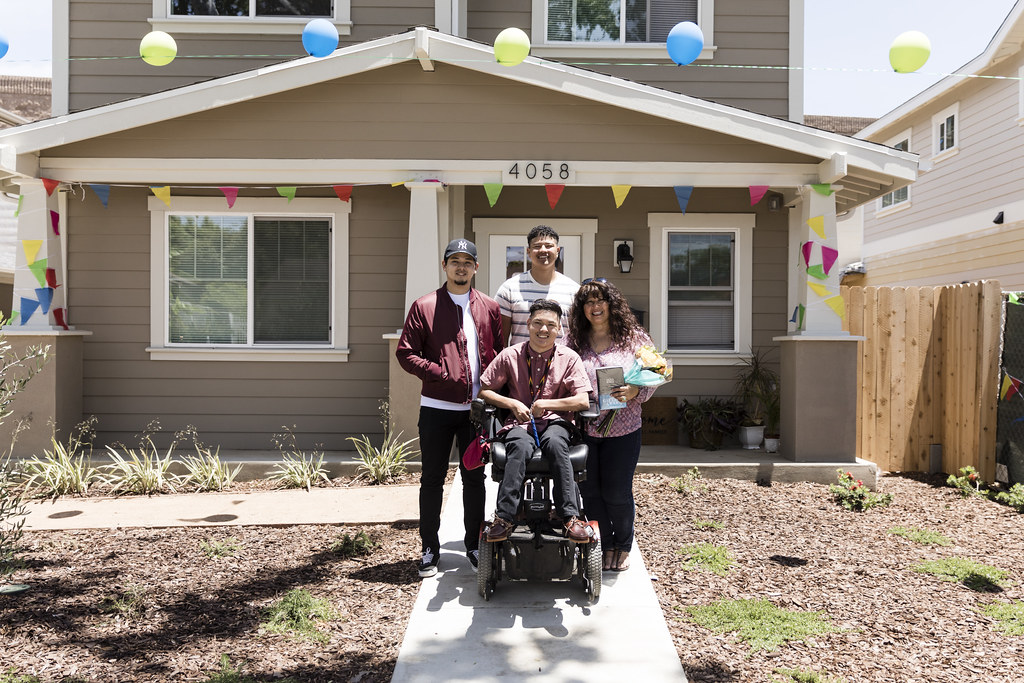Strategies for Attaining Affordable Homeownership with a Tight Budget
Strategies for Attaining Affordable Homeownership with a Tight Budget
Blog Article
Budget Friendly Homeownership Options for First-Time Homebuyers
As the housing market proceeds to evolve, newbie buyers deal with distinct difficulties in protecting inexpensive homeownership options. These efforts not only help with homeownership however also foster area security and economic development.
Government Assistance Programs
Federal government assistance programs play a critical function in making homeownership obtainable for numerous individuals and family members. These programs aim to ease the financial problem connected with acquiring a home, especially for novice buyers. By supplying financial help, grants, and tax obligation incentives, government efforts help connect the void in between increasing housing costs and the buying power of prospective homeowners.
Numerous programs are offered at the federal, state, and regional levels. For circumstances, the Federal Real Estate Administration (FHA) gives insurance on lendings, enabling lenders to offer much more favorable terms, such as lower down payments and minimized rate of interest. In addition, state and regional governments frequently have their very own initiatives, which may include deposit assistance programs, buyer education courses, and favorable mortgage terms.
These programs are developed to address the unique obstacles faced by reduced- to moderate-income family members, including minimal financial savings and credit rating. By promoting an environment where homeownership is a lot more easily accessible, government help programs not just sustain individual ambitions yet also add to community stability and financial growth. Understanding and using these sources can dramatically improve the leads of successful homeownership.
Low-Down-Payment Home Loans
For numerous hopeful property owners, low-down-payment home mortgages provide a feasible pathway to homeownership, especially in today's challenging real estate market. These home loan choices normally require deposits varying from 3% to 5%, making it much easier for new buyers to get in the marketplace without the worry of conserving for a substantial down repayment.
Various lending institutions supply low-down-payment programs, consisting of conventional lendings backed by Fannie Mae and Freddie Mac, along with government-backed options like FHA fundings. These home loans are developed to fit individuals with minimal savings while still offering competitive rate of interest. Importantly, they allow customers to preserve more cash for various other important costs, such as relocating expenses, home inspections, and possible improvements.
However, prospective property owners must bear in mind the trade-offs linked with low-down-payment home loans. A smaller sized down payment might cause higher regular monthly settlements and the need of personal home mortgage insurance coverage (PMI), which shields lenders in instance of default. It is essential for new purchasers to carry out extensive research and consult with home mortgage professionals, ensuring they pick a low-down-payment option that aligns with their long-lasting financial objectives.
First-Time Homebuyer Grants
Several new buyers discover that grants can dramatically relieve the monetary concern of purchasing a home, matching low-down-payment home mortgage alternatives. These grants, often supplied by state and city governments or charitable organizations, offer monetary support that does not require payment, making them an attractive option for those going into the real estate market.
Qualification for first-time homebuyer gives typically depends upon income, creditworthiness, and the purchase price of the home. Many programs are developed to aid low- to moderate-income family members, ensuring that assistance have a peek at this website gets to those that need it most. The application process typically entails paperwork of monetary standing, homebuyer education courses, and sometimes also a dedication to remain in the home for a particular duration.
The amount helpful differs widely, with some grants supplying numerous thousand dollars to help cover shutting prices or deposits. Looking into available gives in your location is vital, as programs frequently transform and might have details requirements. By leveraging these financial resources, novice homebuyers can make homeownership much more obtainable, inevitably attaining their desire for having a home while alleviating the initial monetary stress.
Ingenious Community Initiatives
Cutting-edge neighborhood efforts are playing an essential duty in broadening budget friendly homeownership choices for citizens. These efforts frequently include collaborative efforts between city governments, non-profit organizations, and exclusive sector stakeholders to produce sustainable real estate solutions tailored to neighborhood demands.
One noteworthy technique is the establishment of neighborhood land trust funds (CLTs), which allow citizens to purchase homes while the land stays owned by the count on. This design helps maintain price gradually and prevents speculative price rises. Furthermore, CLTs typically offer academic resources and assistance services to equip first-time property buyers.
One more effective campaign is the growth of mixed-income real estate jobs, which mix affordable systems with market-rate homes. This method fosters inclusive areas and decreases the preconception often related to low-income real estate. Moreover, city governments are significantly sustaining zoning reforms to assist in the building and construction of accessory dwelling units (ADUs), which can give extra rental income for house owners while increasing real estate schedule.

Tips for Budgeting and Saving

Next, develop a devoted cost savings account particularly for your future home purchase. Goal to conserve a portion of your earnings continually, preferably 20% or even more, to build a substantial deposit. Make use browse around this web-site of automation devices, such as direct down payment or automatic transfers, to make saving simpler and a lot more consistent.
In addition, consider taking on the 50/30/20 policy: designate 50% of your earnings to needs, 30% to desires, and 20% to cost savings and financial debt settlement - Affordable Homeownership. This method advertises well balanced economic wellness

Final Thought
In recap, inexpensive homeownership options for novice buyers include numerous resources such as entitlement program programs, low-down-payment home loans, and grants. These efforts not only facilitate access right into the housing market yet also advertise community security and economic growth. By leveraging these financial tools, individuals can browse the intricacies of homeownership, inevitably adding to a much more fair housing landscape. Proceeded support and awareness of these programs are crucial for improving accessibility to homeownership chances.
As the real estate market continues to advance, first-time buyers deal with view publisher site unique difficulties in protecting budget friendly homeownership alternatives. By fostering an environment where homeownership is more easily accessible, federal government help programs not only sustain specific goals but also add to community security and financial growth. By leveraging these monetary resources, novice property buyers can make homeownership much more available, eventually achieving their desire of possessing a home while alleviating the first monetary pressure.
In summary, cost effective homeownership choices for new buyers encompass numerous sources such as government help programs, low-down-payment home loans, and grants. By leveraging these monetary tools, individuals can navigate the intricacies of homeownership, inevitably adding to a more equitable real estate landscape.
Report this page